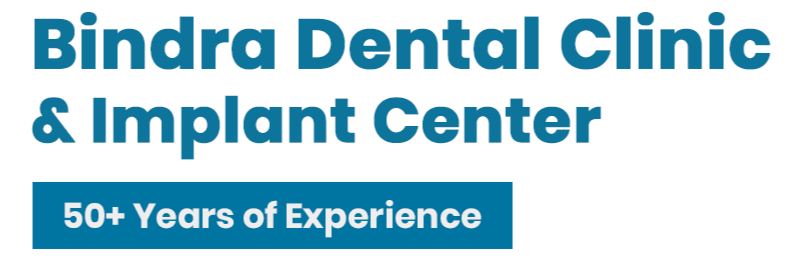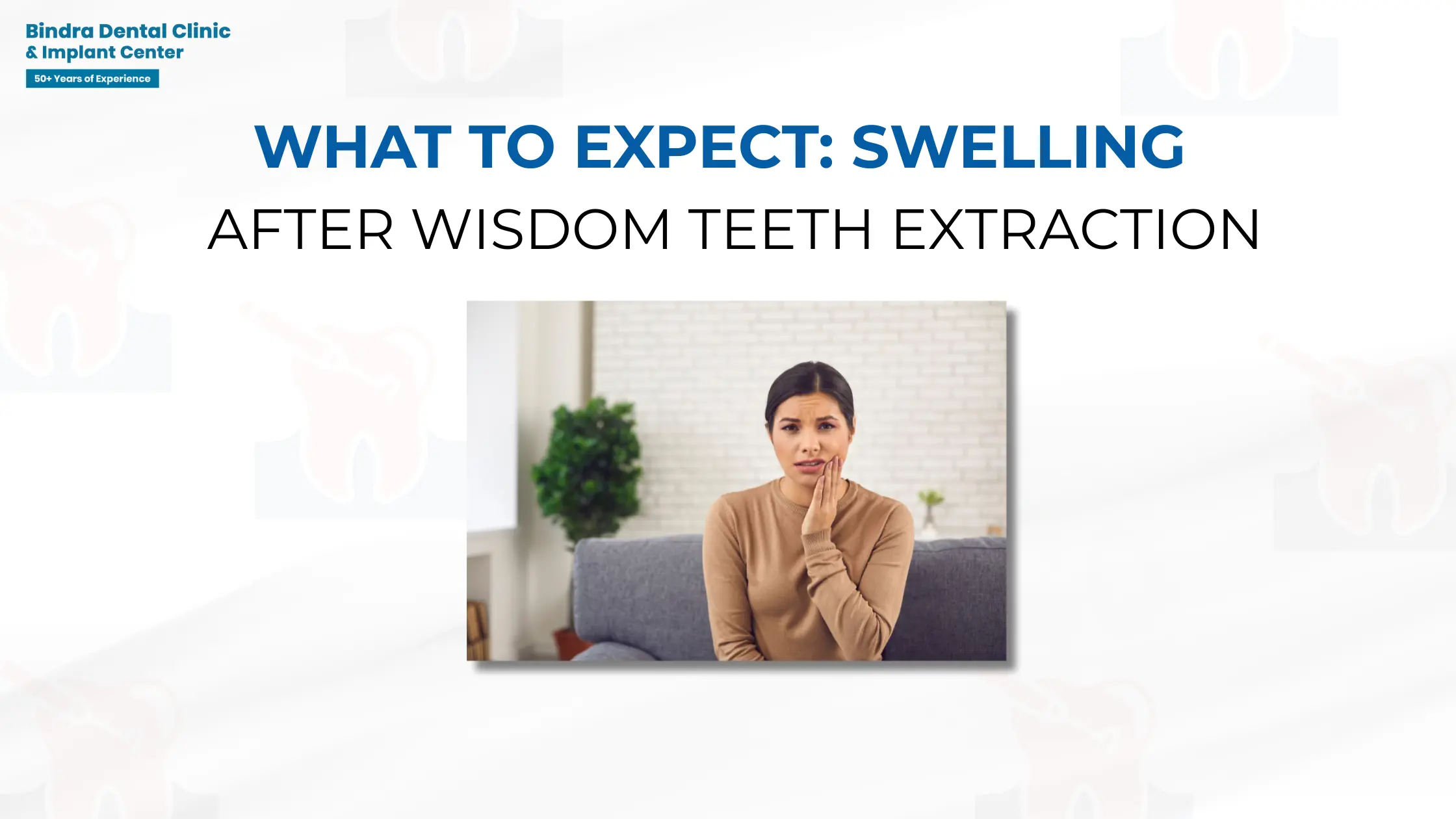Summary
Swelling is a symptom of a normal healing process following the removal of wisdom teeth; however, it is not pleasant. This guide will take you through the expected steps, how long swelling will last, what you can (and cannot) do after the procedure, and how to minimize the puffiness sooner. We shall also mention questions such as what happens after wisdom teeth removal and can you drink soda. And take a closer look at what alternatives there are for after wisdom teeth removal swelling in case you are not sure about the surgery yet.
Introduction
Having your wisdom teeth removed is not actually a stroll in the park. Among the most popular (and irritating) side problems? Swelling. So, no matter it you get chipmunk cheeks or some little puffiness, it all goes with the territory of healing.
Hi I am Dr J Bindra, Earlier in my blog post I discuss about benefits of wisdom teeth. In this post, I will discuss what you need to know about swelling following the removal of your wisdom teeth, what is normal and what is not. Additionally, i will briefly cover some of the typical post-op concerns, as well as dwell on whether wisdom teeth removal can be avoided altogether.
How Long Does Swelling Last After Wisdom Teeth Removal?
After wisdom teeth removal swelling normally reaches its maximum in the 2nd or 3rd day of your procedure and slowly subside. But each individual heals in a slightly different way.
When Should You Expect the Swelling to Start?
Swelling is observed in most people during the first 24 hours following the surgery. It is likely to get worse before it gets better, and it will most likely peak between 48 to 72 hours post-op. The swelling may be more pronounced in the event you have had the removal of wisdom teeth done.
When Does Swelling Go Away Completely?
In general, swelling starts to decrease after day 3 and is mostly gone by the end of the first week. However, mild puffiness might linger for up to 10 days. If you’re still dealing with swelling beyond two weeks, it’s worth checking in with your oral surgeon just to be safe.
After Wisdom Teeth Removal Swelling: What’s Normal vs. What’s Not?
One has to be aware of the type of swelling that is supposed to be present- and what may indicate infection and other complications.
Normal Signs of Swelling
- Puffy cheeks or jawline
- Tightness or slight tenderness in the area
- Mild bruising around the cheeks or neck
- Swelling that improves gradually after the third day
These are all part of your body’s healing response and nothing to worry about.
Warning Signs That Require a Call to the Dentist
- Swelling that gets worse after day 4
- A bad taste in your mouth or pus from the site
- Fever or chills
- Difficulty opening your mouth or swallowing
Should you have any of these symptoms, then you could be infected and need to call your dentist or oral surgeon as soon as possible.
How to Reduce After Wisdom Teeth Removal Swelling Fast
People usually follow home remedies to get releif from wisdom teeth pain. Trying to get rid of feeling like a chipmunk? The following are how you can reduce the swelling very fast.
Use Ice (But Not Forever)
Within the initial 24- 48 hour period, a cold pack is to be used on the outside of the face after every 15-20 minutes. This will minimize inflammation and numb the part to alleviate the pain. After the initial two days replace with warm compress to stimulate blood circulation and healing.
Keep Your Head Elevated
Prop yourself up with extra pillows while sleeping to prevent fluids from pooling in your face, which can worsen swelling. Staying upright (even while resting) really makes a difference.
After Wisdom Teeth Removal: When Can I Drink Soda?
We understand: occasionally you are merely in the mood to drink your favorite fizzy beverage. However, after the treatment in surgery, timing is everything
Why Soda Is a No-Go Early On
Consumption of soda before the healing process of wisdom teeth removal is complete can derail the healing. It will cause irritation to the surgical site due to carbonation and sugar and may leave the blood clot dislodged-giving rise to a painful condition known as dry socket..
So, When Can You Finally Sip That Soda?
You should at least allow 7 days before you start taking soda in your diet. Still, do not use straws since suction can provide dry socket also. In the first few days, it is much safer to drink water and electrolyte beverages.
After Wisdom Teeth Removal: When Can I Use Mouthwash?
It is good to keep your mouth clean-but you should be careful about mouthwash immediately after surgery
Why You Should Hold Off
Alcohol is present in most mouthwash products and this irritates the healing gums. Hard swishing has the potential to blow off too, the clot that is covering the wound hence delayed healing or complications may arise.
Safe Timeline to Start Using Mouthwash
Wait at least 3 to 5 days before swishing with mouthwash and begin with a soft, nonalcoholic one. In the interim, your dentist may suggest a saltwater rinse (after the initial 24 hours).
Are There Alternatives to Wisdom Teeth Removal?
Just because you are in the planning or second-guessing stage of the surgery, does not mean that you are alone. Wisdom teeth do not need to be removed in everybody..
When Wisdom Teeth Might Not Need Removal
If your wisdom teeth are:
- Fully erupted
- Properly aligned
- Not causing crowding or pain
- Easy to clean
your dentist might recommend leaving them alone and simply monitoring them with regular X-rays.
Other Dental Alternatives
Golden tooth cleaning, orthodontic conformation or laser therapy may also be considered as an alternative to complete removal (coronectomy) in certain situations. Before you do that, first check with your dentist or oral surgeon to determine what does not make sense in your case.
FAQs
Nope! The swelling is completely normal and to be expected particularly within the initial 3 days. You should worry only when it is worse or associated with fever, pus or excruciating pains.
Do not use a straw for at least a week – sucking can dislodge the clots and cause dry socket..
Eat only cold and soft food, such as yogurt, smoothies (not a straw), ice cream. Avoid all spicy, crunchy or hot foods.
The next day you can brush your teeth, but do not touch the area of surgery, be delicate. Use no violent rinsing.
Certainly, leaving one side with a more difficult extraction. Irregular swelling is generally acceptable provided this is accompanied by no other symptoms or pain.


